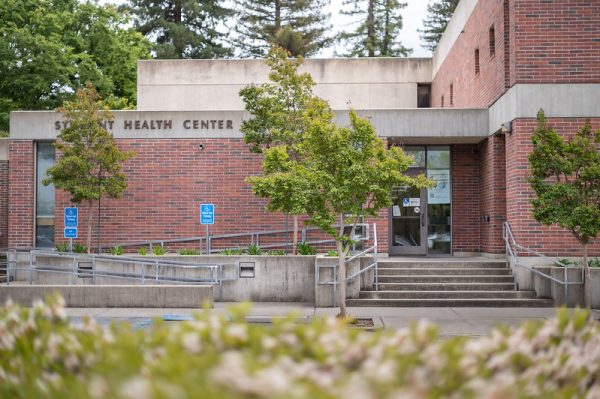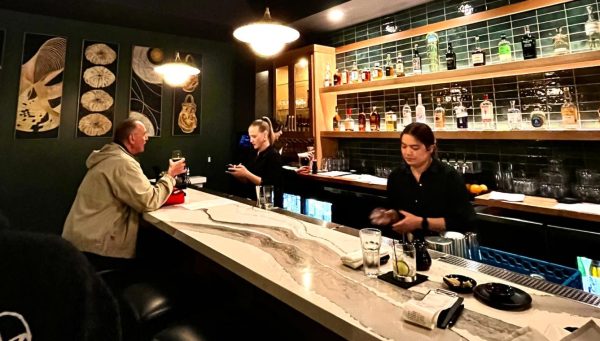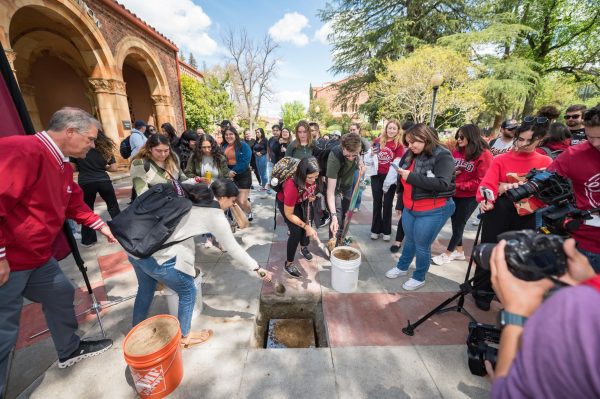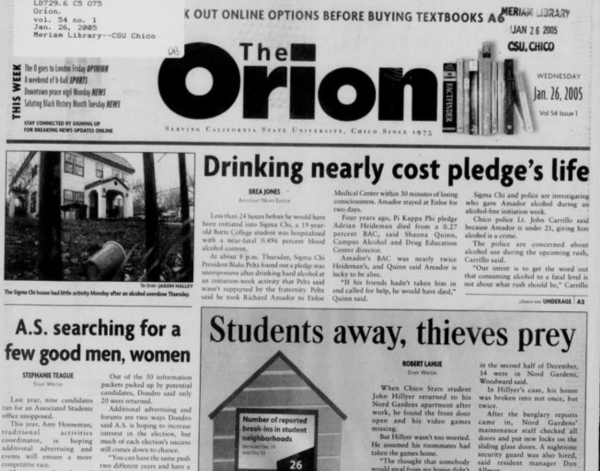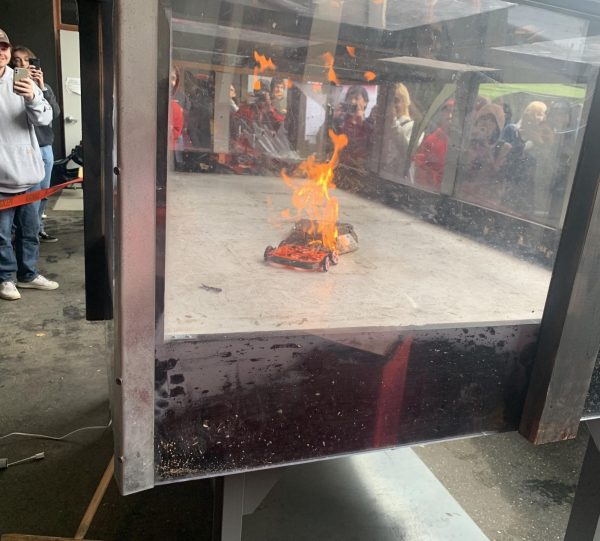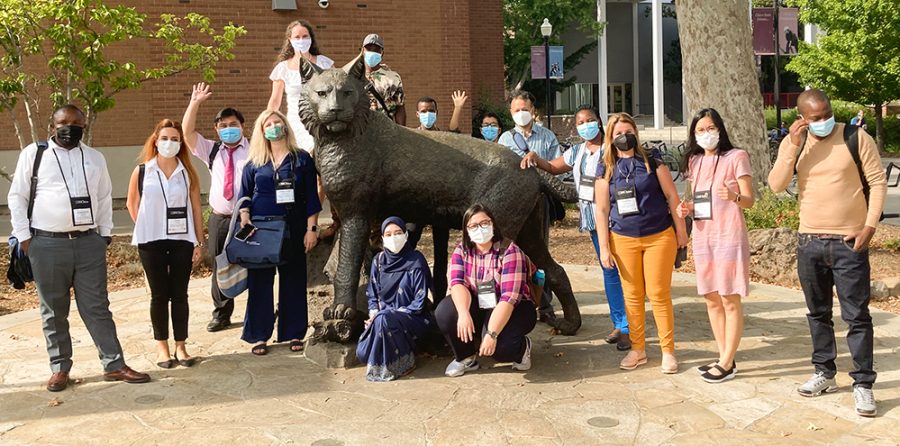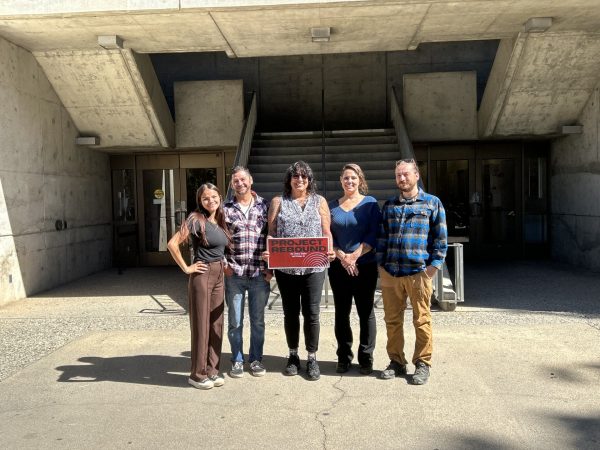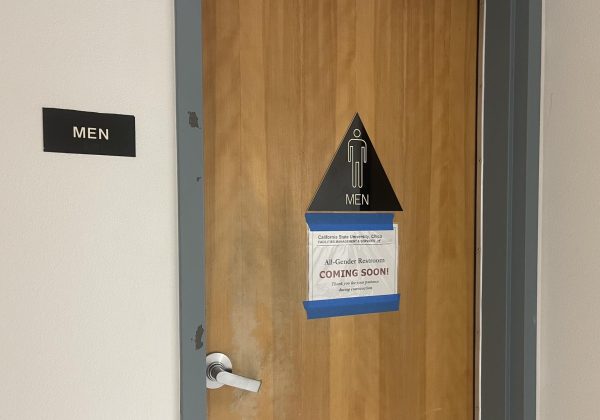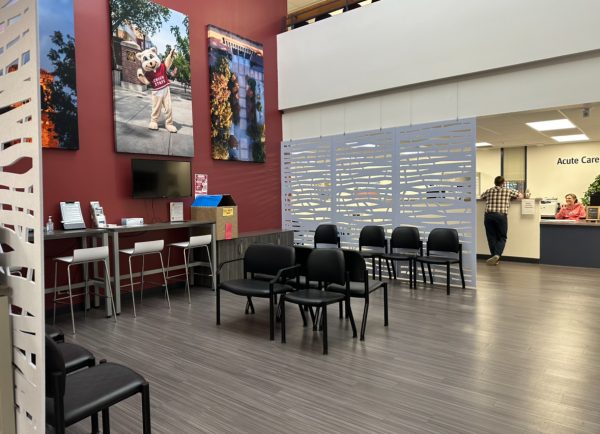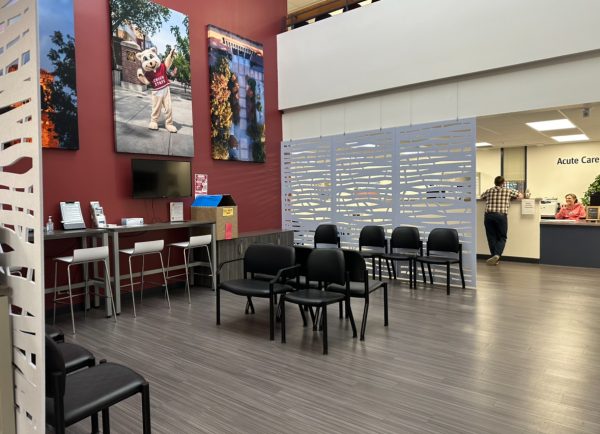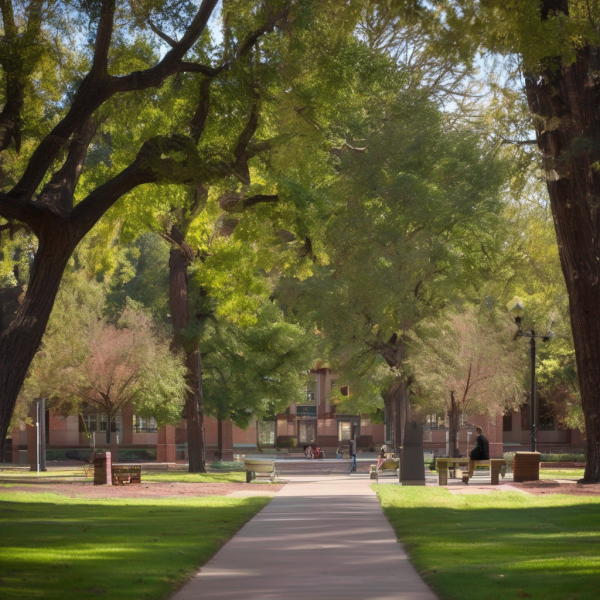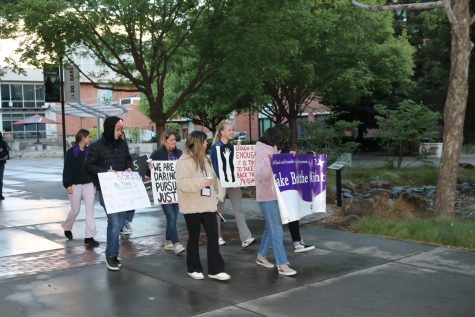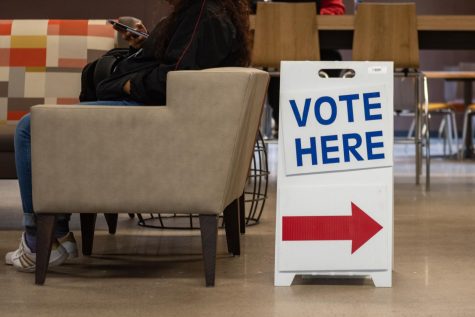Chico State welcomes teachers from across the world
Photo taken Sep. 25 by Heather Hacking.
Theophile Dusenge of Rwanda, Esra Poyraz of Turkey, Tin Nguyen of Vietnam, Tracy-Lee Edwards of Saouth Africa, Marina Yurovskaya of Russia, Bassanio Gumpo of Zimbabwe, Ousmane Ba of Burkina Faso, Jimena Sanchez of Equador, Sachin Paul of Bangladesh; Bridget Awaadem of Ghana, Ivannia Arias Zuniga of Costa Rica, Day Iamprae of Thailand, Clement Nyirenda of Malawi, Nurul Faznur of Malaysia, and Praew Polkaew of Thailand visiting CSU Chico as part of the Fulbright program for cultural and educational exchange.
Chico State welcomed 16 teachers from across the globe for a six-week exchange of cultures and ideas.
The teachers arrived in Chico from 15 different countries as a part of the Fulbright Teaching Excellence and Achievement program on Sep 14.
The Fulbright program is funded by the Education and Cultural Affairs Department of the U.S. Department of State and the IREX organization. IREX, a global leadership-based developmental and education program, has been selective in choosing which universities receive the contract to host teachers. Chico State is one of the few the program works with regularly.
Tracy-Lee Edwards, from South Africa, said that everyone in the program wants to change society through teaching. She hopes to ensure equality in education by decolonizing the education system.
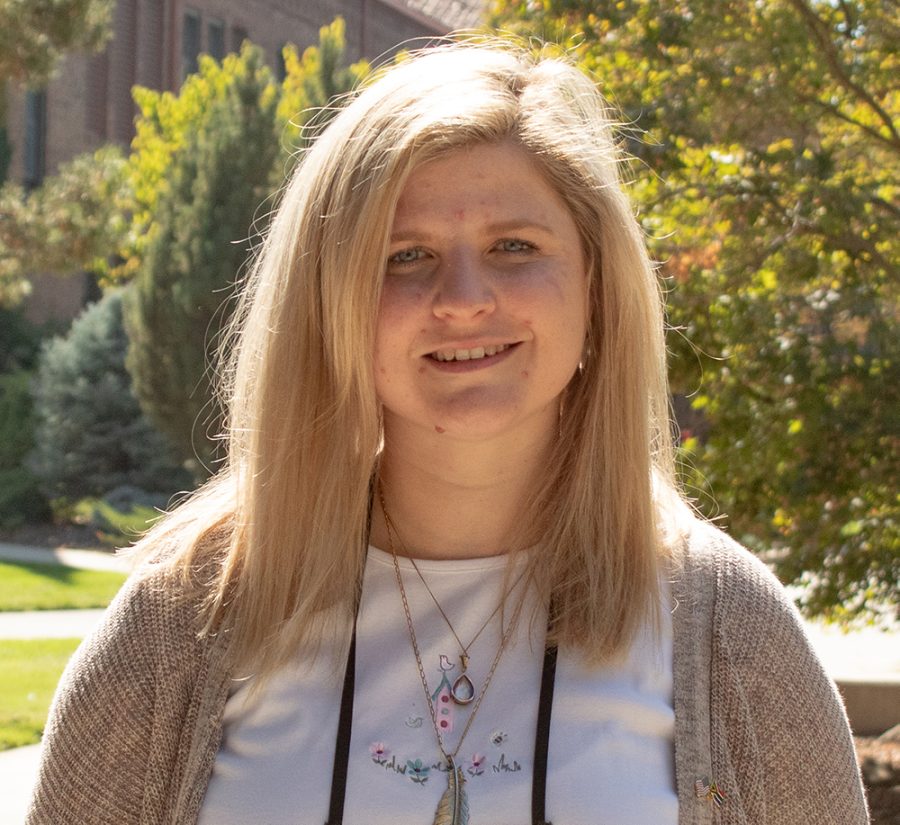
When Edwards found out about the program, she realized it was an opportunity to expand her worldview and her teaching skills. She said that collaborating with people from differing cultures on topics like race and sexuality has given her important new skills to take back to her own classroom.
Falah Wannas, from Iraq, said that seeing the dynamics between teacher and student in inquiry-based learning was eye opening. He is passionate about continuously learning more about the world and how education shapes future generations. He felt that this ultimately creates a better world for us all.
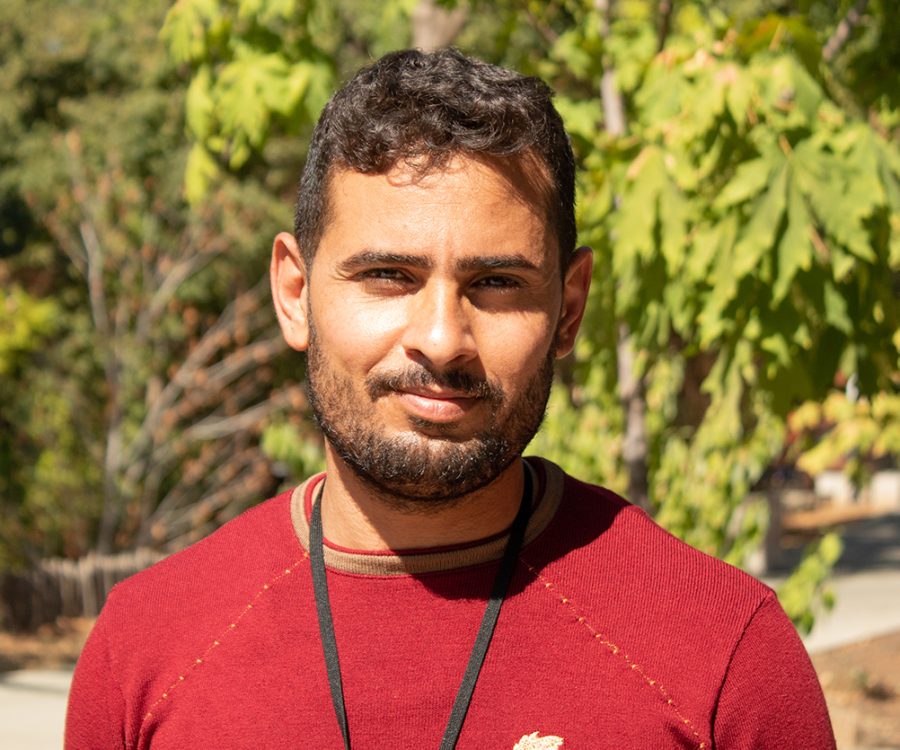
A majority of the 16 educators in the program teach English, and this became a common ground for them. They felt that the English classroom was not just a space for the subject to be taught, but also a communal space where social change could happen.
“We’re all teachers from around the globe,” Wannas said. “We teach the same subject around the world in order to change the reality of the world. No one is bigger, no one is smaller.”
Edwards was afraid when she arrived in America that she would have a hard time finding common ground with the diverse group. She was shocked to find that she felt an instant connection to the other teachers despite stark language and culture barriers.
“When you have like-minded people in a room the language barrier dissipates,” Edwards said. “We all have this common goal of making the world a better place using education.”
Edwards and Wannas see education as a lifestyle, not a job. They view teaching as a lifelong commitment to work with the youth of the world to build a more kind and equal society for all.
The Fulbright program is a space of inspiration and hope for the teachers in their goal to make this dream a reality.
Edwards said. “We all can’t wait to go back to our countries and do something amazing.”
Applying and being accepted into the program is no easy feat. The process is long and arduous, taking nearly a year to complete and filled with rigorous self-reflection, testing and interview rounds.
Wannas talked about the hours of testing, elimination rounds and more testing that he went through to come here. He just wanted to make it here, he said, and to learn and grow and become a better teacher for his students.
The majority of the visiting teachers had been waiting since 2019 for acceptance into the program after COVID-19 brought the world to a screeching halt.
“A lot of us had given up and felt like it was never going to happen, we weren’t part of this program,” Edwards said. “We never thought it would really happen.”
Charles Zartman, a professor at Chico State and the director for The Center for Bilingual/Multicultural Studies and International Training Programs, has been teaching since 1975. He began with a Latinx-focused program at a high school on the U.S.-Mexico border.
Surrounded by so much diversity and differing culture from his own, he saw just how important this field was. He dedicated the rest of his career to training the leaders of cultural programs and working to foster the celebration of diversity in education.
Zartman said he was inspired by the visiting teachers.
“They’ve all been selected for a reason and that’s because they’re truly bright lights in their respective countries,” he said. “It’s such a joy to be around such capable, thoughtful, wonderful people.”
Heather Hacking, program manager for International Training at Chico State and acting host for the group, has organized excursions and cultural trips in places like San Francisco and Fort Bragg.
She hopes to share with them a small part of the home she has come to love here in California.
“There’s never a better time in the world to have a better understanding of each other and to bridge cultural gaps, maybe now more than ever,” Hacking said.
Ava Norgrove can be reached at [email protected]
